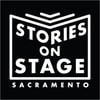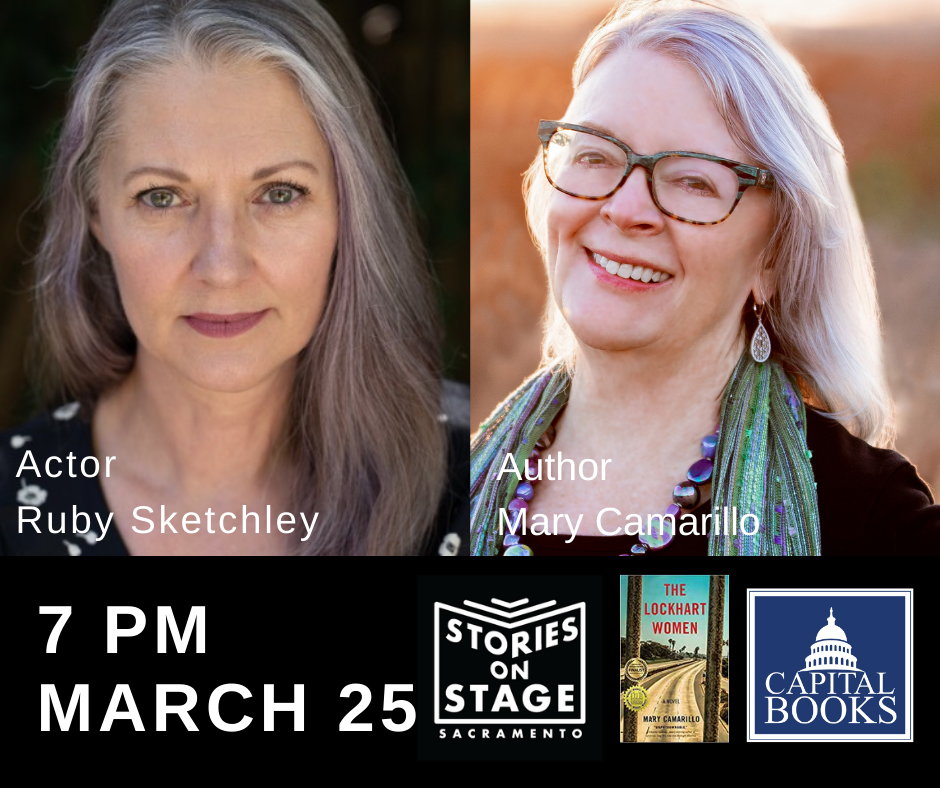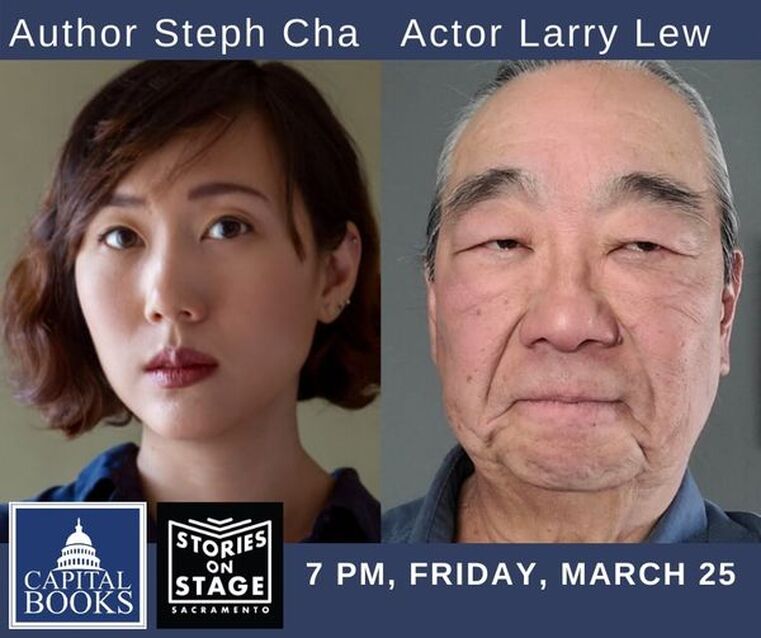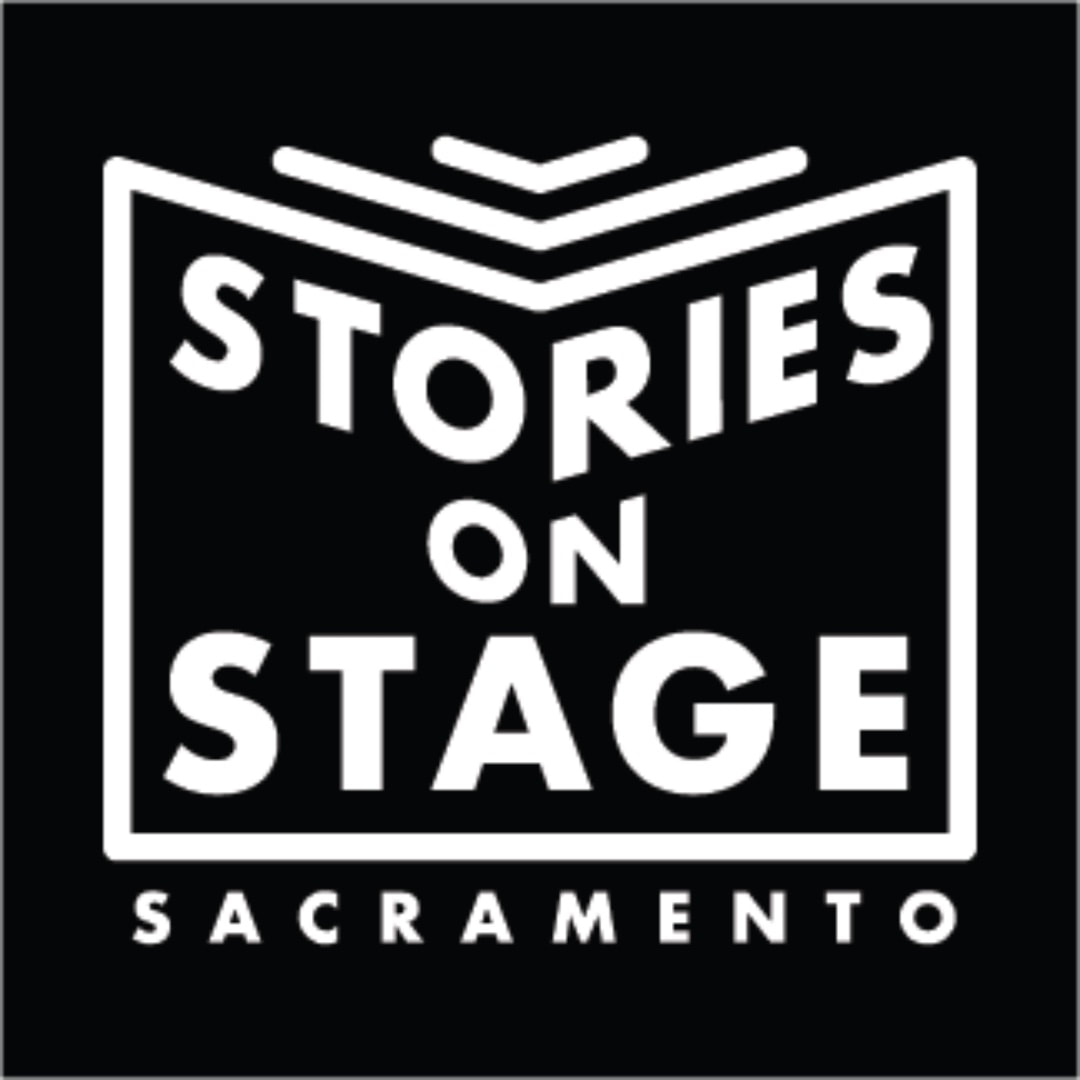Spotlight on March 25 Actors Ruby Sketchley & Larry LewActor Spotlight: Ruby Sketchley This month, actor Ruby Sketchley will join SOSS to read an excerpt from The Lockhart Women by Mary Camarillo. Our casting director Jessica Laskey talked to Sketchley about her background, her production company and her love of history. Jessica: Ruby, you’ve done a ton of theater work in the region with companies that include Big Idea Theatre, Sacramento Theatre Company, Main Street Theater Works and KOLT Run Creations. How did you get started in the industry? Ruby: I got into theater way back when I was in school—I even went to pursue a career in theater at San Diego State. But because I had to work full time while going to school, I didn’t have time to do any theater. After college, I moved to England and lived there for years and got involved in music videos and film. I started as a runner on set, running my butt off for directors who went on to work with some really big names: George Michael, Robbie Williams… Jessica: You also met your husband, Sketch, in England, right? Ruby: Actually, Sketch and I worked and lived within four blocks of each other (in England) but didn’t meet for ten years. We eventually got married and had our first baby in England, then moved back over here. I was spending so much time focused on being a mom that it wasn’t until my husband and I were directing a short film together and I had to step in for another actor that I finally realized how much I missed theater. Jessica: So you dove back in? Ruby: I started auditioning again and did lots of shows with Big Idea Theatre, eventually becoming a company member. Jessica: I know you and Sketch produce lots of kinds of video projects together. Can you tell me about that? Ruby: Our company, Tiny Octopus Productions, has done work with a lot of nonprofits, including Women’s Empowerment, the Jameson Humane Animal Rescue out of Napa and for Old Sacramento. I was even part of the Old Sac underground tours for a few years—I helped the non-actor history people learn how to write and perform historical information in a more engaging way. I tried to open them up to thinking about facts as stories. Jessica: You’ve done a lot of work with historical material. Ruby: Yes, we’ve also filmed videos for the City of Sacramento’s Anytime Tours in Old Sac and the Old City Cemetery. They’re available for free online. You can go to a map of the headstones in the cemetery, for example, and watch a two-minute video about the person who’s buried there. We did quite a bit before the pandemic, but during pandemic, they were sending those videos out like crazy! I’ve done ten in the cemetery, ten in Old Sac, ten more in Pioneer Grove and we’re doing more on the women of Old Sac. I love cemeteries—they’re places I visit in every city or country I go to. They’re very peaceful, but I also love to look at what people wrote on the headstones, how old people were when they died. It’s all really interesting. I love history. Jessica: So much so that you’re writing your own historical fiction, right? Ruby: Yes! I’ve written and I’m getting close to publishing my first book, Someone’s Daughter: Will to Survive (under pen name Rhys Shaw). It’s very female-focused—I only write heroines—set in the 14th Century. It’s gritty, real and not very pretty. There’s a lot of brutality. As I was doing research for the cover design, I found so many of these kinds of books have beautiful romances flowing through them, but in this first book, I don’t. I have love, but no romance, so I’ll have to incorporate that into book two. Jessica: Coming out with a book is no small feat. How has it been for you? Ruby: It’s a lot of work. There are so many things I didn’t know I didn’t know. People have this romanticized notion of putting a book out—that you have a story and just put it out there for people—but every author knows how much work it really takes. Jessica: You and Sketch have also done some documentary work, including an upcoming project about artist Gail Hart, who did the sculptures outside Golden 1, and the award-winning documentary “In the Parlor” about home death care. How did that come about? Ruby: I was on the board of the Capital Film Arts Alliance and met a home death care worker who needed an editor, so we partnered with her. I learned a lot and I’m absolutely in awe of it now. It opened up the conversation of death for me. I see it now more as a cycle of life, as many cultures around the world do. But we in America have pushed it aside because we’ve allowed others to take care of the process—plus it’s become a big moneymaking tool. Jessica: What are you up to now, considering the last two years brought live theater pretty much to a halt? Ruby: I’ve actually been working at Capital Stage for the last few months as their COVID safety manager. It’s exciting stuff—I clean the theater between shows, clean the green room and all actor spaces, the bathrooms, any place people will be. The amount of Lysol and Clorox we go through is ridiculous. But I love the shows they put on. It’s very forward-thinking theater—topical, conversation-building, sometimes controversial. I think theater should be thought-provoking. Jessica: What excites you about reading this excerpt from The Lockhart Women? Ruby: Mothers/daughter relationships are always interesting. Sometimes I just want to shake Brenda (the protagonist) every time she says, “I can quit anytime I want.” That’s something very common and something I think a lot of people will be able to relate to, knowing someone in their life who thinks they don’t have a problem and saying that to convince themselves. It really hit home. We as a species tend to deny problems that can be glaringly obvious to ourselves and everyone else. Actor Spotlight: Larry Lew This month, actor Larry Lew will join SOSS to read “All Luck” by Steph Cha, an excerpt from the story collection South Central Noir. Our casting director Jessica Laskey talked to Lew about music, stage fright and why it’s always a good idea to learn the electric bass. Jessica: Larry, you started your theater career in the orchestra pit playing electric bass for musical comedies at the Old Eagle Theatre. How did you first get into music? Larry: I was a kid coming of age in the ‘60s and everyone wanted to play guitar to get the girls. I don’t know about that, but I did learn how to play the guitar and electric bass. The first time I had a bass put in my hand was when I was playing in a power ‘60s trio with two other guys at McClatchy High School. The lead guitar player was a prodigy and the drummer went on to play kettle drums for the Sacramento Symphony. … Then in the late ‘70s, I had a friend who was playing drums for locally written theater shows that used bastardized ‘50s and ‘60s music. My buddy the drummer asked me to play bass with them. I remember one of the songs in a show about angry housewives was called “Eat Your Fuckin’ Cornflakes.” They were wild. Jessica: Did you discover that you loved performing? Larry: No! I was so shy, I wouldn’t even face the crowd when we were playing the opening tunes. When I did my very first play, “Pump Boys and Dinettes,” luckily one of the actresses was pregnant and we had to wait for her to have the baby. It took four months, so I had plenty of time to practice. On opening night, I could hear the mulling of the crowd on the other side of the curtain and I was freaking out. The best I could do was just focus enough to set aside my stage fright. I guess it went well. Jessica: I’ll say! You’ve since done a ton of regional theater. Larry: I got lucky. Dennis Ship opened up an Asian theater company and my brother happened to see a notice in the Sacramento Bee for a casting call, so I went to that and got into my first play with them, which had been written for the Japanese American Museum. … Since there aren’t many Asian actors in Sacramento, I got to do some pretty meaty parts and did a whole bunch of plays with them. It’s so nice to feel the energy from the audience and reciprocate that. I guess I got hooked. One of the last plays I did was with James Wheatley at Celebration Arts. Jessica: You have a great voice. Have you ever done voiceover work? Larry: Actually, my niece’s daughter was doing an internship with NPR last September and one day she calls me up and says they’re doing a story on a guy who used to be a cook and his son set him up teaching how to cook Chinese dishes online during the pandemic. NPR interviewed the son and his family and they wanted me to do a voiceover in English for when he answered in Cantonese. They sent me a mic and I did it from my bedroom, it was a real cool experience. Jessica: Now that you’re retired from the state, what are you up to? Larry: I’ve played music with a lot of people over the years—that’s a good thing about being a bass player; everyone needs you. Right now, I’m playing with a band that plays at nursing homes. We play all the old stuff from the ‘30s, ‘40s, ‘50s. We transform (the residents) back in time to when they weren’t at a nursing home and had vital lives, were doing jobs, raising kids, taking care of husbands. They’re the fortunate ones. That’s how I met Dave Erickson. We just formed the Dave Erickson Quintet, which is performing as part of the Big Day of Giving at the Asian Community Center on May 4 between 4 and 8 p.m. We were going to play (another gig) but it got cancelled during the pandemic. We’re learning to ease back into normalcy. In addition to being a professional actor and casting director for Stories on Stage Sacramento, Jessica Laskey is also a freelance journalist. Her work has appeared in Comstock’s, Sacramento and Sactown Magazines, as well as in The Sacramento Bee, Inside Sacramento and OUT North Texas. More information at jessicalaskey.com
0 Comments
Leave a Reply. |
|
Who We AreLiterature. Live!
Stories on Stage Sacramento is an award-winning, nonprofit literary performance series featuring stories by local, national and international authors performed aloud by professional actors. Designated as Best of the City 2019 by Sactown Magazine and Best Virtual Music or Entertainment Experience of 2021 by Sacramento Magazine. |
|



 RSS Feed
RSS Feed
